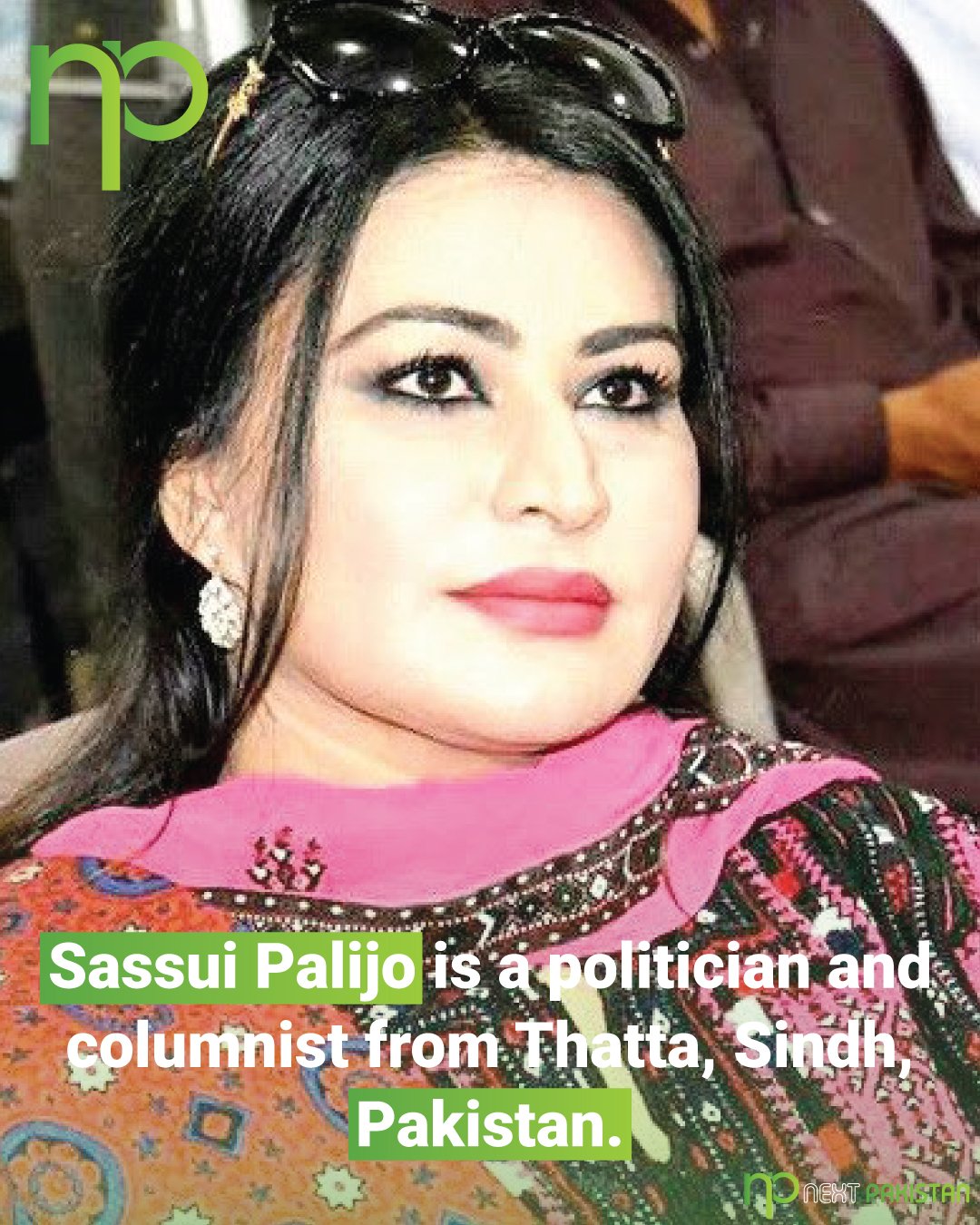
- December 28, 2023
- ubaidah khan
- 0
Sassui Palijo is a journalist and politician from Thatta, Sindh, Pakistan. Palijo is currently a member of the Pakistan Peoples Party and served as a Senator from Sindh on a women’s reserved seat from 2015 until 2021. She is also a two-time Sindh Provincial Assembly Member representing PS-85 (Thatta-II).
Early Life and Education
She was born on January 10, 1976, in Jungshahi, Thatta, to a Sindhi Muslim family. She holds a law degree from the University of London and an MA in Political Science from the University of Sindh (1989).
Political Career
Political Career Initiation (2002-2008)
Sassui secured her first victory in 2002, becoming a Member of the Provincial Assembly of Sindh, representing the Mirpur Sakro area within constituency PS-85 (Thatta-II). Her re-election in 2008 marked a significant milestone as she stood as the sole directly-elected female assembly member among 168 representatives in Sindh. During her tenure as the Minister for Culture in the Sindh cabinet, under Chief Minister Syed Qaim Ali Shah from 2008 to 2013, Sassi spearheaded impactful initiatives. Notably, her advocacy led to the relocation of the archaeology department from Islamabad to Sindh, enabling closer oversight of local heritage. Additionally, her efforts contributed to the publication of nearly 300 books focusing on Sindh’s rich culture, history, and language.
Ministerial Tenure and Contributions (2008-2013)
Serving as the Minister for Culture offered Sassi a platform to drive significant cultural initiatives within the Sindh cabinet. Her instrumental role led to the successful relocation of the archaeology department from Islamabad to Sindh, a move pivotal for preserving and managing the region’s rich heritage. Moreover, under her guidance, approximately 300 books highlighting the diverse facets of Sindh’s culture, history, and language were published, emphasising her commitment to preserving and promoting the region’s heritage.
Electoral Setback and Transition (2013-2018)
Despite her impactful contributions, Sassi faced a narrow defeat in the 2013 Pakistani general election, losing her seat by a mere 409 votes. Subsequently, she transitioned to a senatorial role, representing a reserved seat from Sindh. Her shift to the Senate marked a new phase in her political journey, enabling continued service to the region and its constituents.
Senate Tenure and Committee Chairmanship (2015-2021)
Assuming the position of a senator from Sindh, Sassi dedicated herself to serving diligently in the Senate from 2015 to 2021. Her commitment to public service was further exemplified when she ascended to the role of Chairperson of the Senate Standing Committee on Parliamentary Affairs in 2018. This leadership position underscored her continued dedication to parliamentary affairs and legislative responsibilities.
Activism
Palijo has been a prominent advocate for human rights and gender equality throughout her career. Amid General Musharraf’s rule, she faced multiple arrests across various cities including Islamabad, Thatta, Karachi, Lahore, and Thar due to her vocal protests against the military regime. In 2009, she vehemently opposed Musharraf’s decision to hand over the Hindu Gymkhana to the National Academy of Performing Arts, emphasising the importance of preserving the Gymkhana for the Hindu community’s activities.
Personal Life
Palijo’s family boasts a legacy deeply rooted in politics and activism. Her father, Ghulam Qadir Palijo, served as a Member of the Sindh Provincial Assembly from Thatta twice – in 1993 and 1997 – and held the position of chairman of Thatta district council. Adding to this lineage of activism, her mother, Akhtar Baloch, made history as the first Pakistani woman politician arrested during Ayub Khan’s military rule. Furthermore, her grandmother, Zarina Baloch, was a multifaceted figure, excelling as a writer, actress, folk singer, teacher, and political activist. The legacy of political engagement continued through her uncle, Rasul Bux Palejo, who was the founder of Awami Tahreek, further illustrating the family’s enduring commitment to political and social causes.